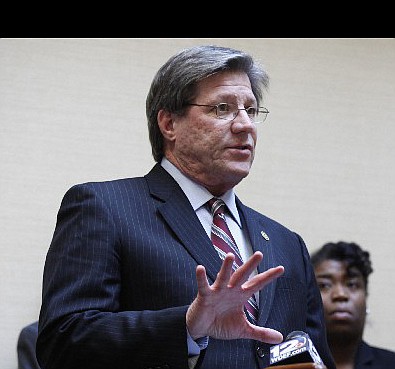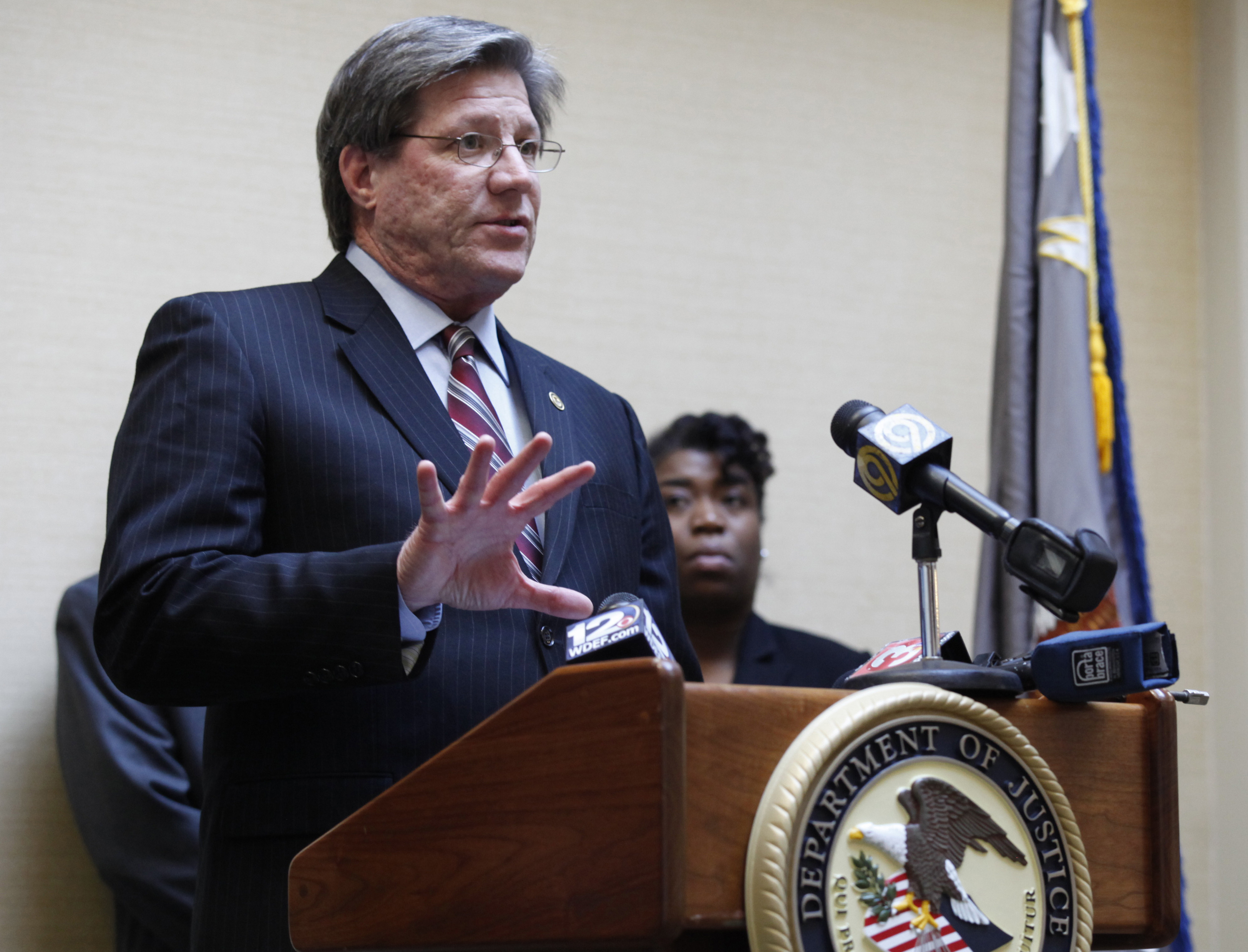A crisis is brewing in the federal judiciary that experts say could jeopardize fundamental rights guaranteed by the Constitution.
"I've worked in all three branches of government and the private sector," said U.S. District Judge Harry S. "Sandy" Mattice. "I have never been involved in any organization either public or private in which the workload has so far exceeded the resources that are allotted to do that job."
Across-the-board budget cuts of 8 percent brought on by the sequester have meant hiring freezes, unfilled positions, training and travel expenses cut for what many call an already overworked portion of federal government.
The sequester is just the latest of decades-long trends of broadening federal courts' responsibilities yet underfunding to carry out their congressional mandate, Mattice said.
But at stake are far more than layoffs, furloughs and heavier workloads, as important as those are to the people involved. The very heart of the American judicial system could be on the line, Mattice and others said.
Court operations are not like business operations. The functions of prosecutions, criminal defense and timely trials are constitutional rights.
Without relief from budget cuts and further reductions anticipated next fiscal year, Mattice said there is a "real question" as to whether the courts will be able to continue to protect 6th Amendment rights to legal representation.
"Do I have to dismiss cases if we cannot pay for defender services?" Mattice said.
Though judges, court clerks and prosecutors all feel the pinch, public defenders have it worse.
Beth Ford is the federal community defender for the eastern district. Her office represents indigent criminal defendants in federal court. The task is a constitutionally-guranteed right of citizens accused of crimes.
The looming budget, due in September, looks like a "perfect storm" for defender services, she said.
"We will have a 23 percent decrease in proposed budget funding," Ford said.
That means this year's already reduced annual budget of $5.8 million would decline to $4.5 million. Ford avoided furloughs and layoffs this fiscal year by foregoing 401(k) contributions to her staff. That's not likely next year, she said.
Other defender's offices across the nation have already begun layoffs and furloughs, she said.
U.S. Rep. Chuck Fleischmann said he'd met recently with district judges and U.S. Attorney Bill Killian about the problems they're facing.
"They are making do with less and I commend them," Fleischmann.
The Republican congressman said while the federal government needs to be more fiscally responsible, across-the-board cuts are not the way to go.
"At some point the people are going to have to make a decision as to where our spending priorities are," he said.
Killian is down three assistant U.S. attorneys in his criminal division. The 33 remaining attorneys resolved more than 900 cases in the district spanning from the Virgina-Tennessee border to Chattanooga.
The office handles more than 1,800 ongoing cases a year among its three branches in Greeneville, Knoxville and Chattanooga.
"That's a lot of cases," Killian said. The district comes in at the top of per capita caseloads and prosecutions when compared to others across the United States, he added.
His criminal division attorneys average 387 hours a year of unpaid overtime each. And the eight civil division attorneys average 295 such hours.
The office operated last year on an $8 million budget and recovered $24 million in money stolen from the government through civil and criminal prosecutions, Killian said.
But if he has to cut caseloads it will be civil prosecutions, not violent criminal cases, he said.
"Ironically, the money-producing side of the fence could be the first to cut back," Killian said.
The almost imperceptible reductions of work such as local law enforcement training on federal laws and initiatives and partnerships between street-level cops and prosecutors are the first items that had to be curtailed, Killian said.
For the first time in more than 20 years the office did not hold its annual law enforcement training.
East Ridge police Chief Eddie Phillips said that the federal-local partnership is vital for getting repeat, violent offenders out of the community.
"If you cut into federal prosecution and the things they can do it really hurts local law enforcement," he said.
Clerk of Court Debbie Poplin provided data showing since 2012 her budget numbers have dropped from $4.5 million to $3.8 million, or 15 percent. The caseload has remained steady.
Austerity measures have meant less training, equipment and supplies, she said.
"We are cutting back on personnel and asking employees to do more with less and less, and then we have to tell them, 'Great job, but now you may get furloughed,'" Poplin said.
Contact staff writer Todd South at tsouth@timesfreepress.com or 423-757-6347. Follow him on Twitter @tsouthCTFP.

